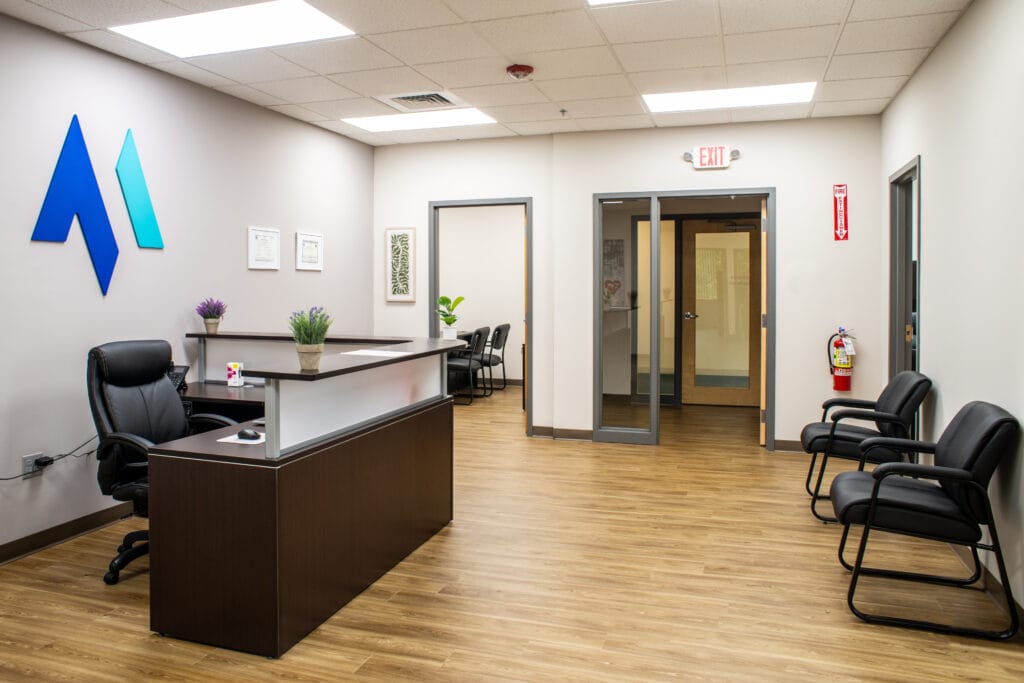While individuals may admit to their drug use when confronted, it is far more common for addicted people to deny that they have a problem and refuse to get help.
In those cases, family members and friends can seek the help of an addiction treatment professional to help organize an intervention. An intervention is an organized and pre-planned event that aims to help addicted individuals realize the extent of their addiction issues and how they impact both themselves and others. In a typical intervention, family members and friends of the addicted person will take turns sharing ways in which the person’s addiction has harmed their lives. A professional interventionist usually accompanies the family and friends throughout the process, which culminates with a request to the addicted person to get help. If they agree, the interventionist will facilitate their safe transfer to an addiction treatment program.
If you are helping a loved one manage their addiction, be prepared that you may face significant resistance to enrolling them in a treatment program.
Working with an addiction treatment professional can make a difference. In some cases, individuals may benefit from a professionally staged intervention that can bring family members and friends together to directly address a loved one. Should an intervention succeed, your loved one can enroll in an addiction treatment program that can help them move towards a stable recovery.
If the intervention falls short, your addiction treatment partner will probably suggest an alternative approach, perhaps changing the setting, messages, or participants for a future intervention. Although it may be frustrating, it is ultimately up to your addicted loved one to agree to accept and attend treatment.
When your loved one does agree to enroll in a treatment program, you can still provide support and care as they recover from addiction. For example, at Meta, we incorporate family members and friends into the recovery process through group therapy and other programs. When looking for a treatment program for your loved one, it’s wise to consider a program that involves family members in the client’s recovery.
After your loved one completes treatment (or during the treatment process if they are attending outpatient treatment and living at home) you can continue to support them. Educate yourself about their addiction and understand the risks facing them when they complete treatment. Many individuals will need to reinvent their lifestyle, including who they spend time with, where they go, and what they do in their free time, in order to reduce their relapse risk. Understand that your loved one may make dramatic changes to their life in order to maintain their recovery. As long as those changes are healthy and positive, try to support their goals and recovery journey.
When helping a loved one recover, you will be faced with good days and bad days. Sometimes your loved one will make incredible progress towards their recovery goals. At other times, they will fall short or feel stuck. Don’t be afraid to turn to your loved one’s addiction treatment program for support.

When they are ready to get sober, sometimes individuals feel they can manage their recovery on their own or with the help of friends and family. Unfortunately, addiction is a complex and difficult disease to treat which involves both physical and psychological dependence. For this reason, we recommend individuals seek professional addiction treatment to assist in their recovery.
Access to experienced, trained, and licensed addiction treatment professionals is one of the most important benefits of enrolling in a treatment program. In order to work as addiction treatment professionals, staff must meet stringent requirements that govern their education, training, on-the-job experience, and relevant certifications. You can be assured that the individuals responsible for your or a loved one’s care during addiction treatment must abide by strict ethical and legal codes, as well as have access to ongoing research and best practices for addiction treatment. Professionals in addiction treatment centers can include licensed therapists, addiction counselors, interventionists, addiction medicine experts, and support staff.
Most leading addiction treatment programs are evidence-based, meaning their therapeutic modalities are based on scientific evidence and research. For example, the best practices of cognitive-behavioral therapy and dialectical behavior therapy derive from clinical research led by academic teams who study whether these approaches are effective for addiction treatment. An additional advantage of evidence-based programs is their ability to adjust treatment modalities to accommodate new and emerging research breakthroughs. As we discover more about addiction, evidence-based programs are better able to adapt their approaches to make sure clients receive proven and trusted treatment.
In some cases, individuals enrolled in addiction treatment programs could benefit from medication-assisted treatment or other forms of medical intervention. In other cases, individuals may struggle with mental health conditions that require the oversight of a medical professional. In an addiction treatment program, clients benefit from having access to on-site medical professionals who can diagnose relevant conditions and adjust treatment programs accordingly.
One of the biggest challenges facing individuals in recovery is the need for ongoing structure and support to help them maintain their recovery for the long term. A lack of structure and support from others is one of the biggest reasons that individuals relapse and return to addiction. Professional treatment programs help reduce this risk by providing a strong framework for recovery across multiple different phases. At Meta, for example, we help our clients through three different phases of outpatient treatment to help prepare them for everyday life. Even after clients leave their formal treatment program, they can still benefit from the resources and connections they gain during addiction treatment.
One of the most challenging aspects of addiction is the isolation that often accompanies the disease. For many people struggling with substance use, it’s all too easy to become disconnected from friends and family and even lose jobs and educational opportunities. Professional addiction treatment programs can help restore those connections. At Meta, we provide peer support groups so clients can connect with others who are experiencing similar life challenges and begin to rebuild their social connections. Additionally, the majority of our executive leadership are in recovery themselves, meaning they can provide an additional level of empathy and support for individuals who are looking to get sober for the long term.

If you or a loved one needs help with an addiction, call us today at 844-909-2560, or email us at info@metaaddictiontreatment.com. You can also visit any one of our three locations, which are open 24/7:
Our flexible outpatient programs can help individuals live the sober life they want and deserve. Best of all, our programs allow individuals to progress in their recovery while still going to work, attending school, or taking care of their family. We understand that recovery must be effective both inside and outside treatment programs and we work hard to help our clients apply the lessons learned in treatment to their everyday lives. For individuals who need sustained support while fulfilling life responsibilities, outpatient treatment with Meta can be an ideal fit.
If you’re not sure whether outpatient treatment is appropriate for you or your loved one, consider taking our assessments.
Don't wait to get help. Start a journey towards recovery today.